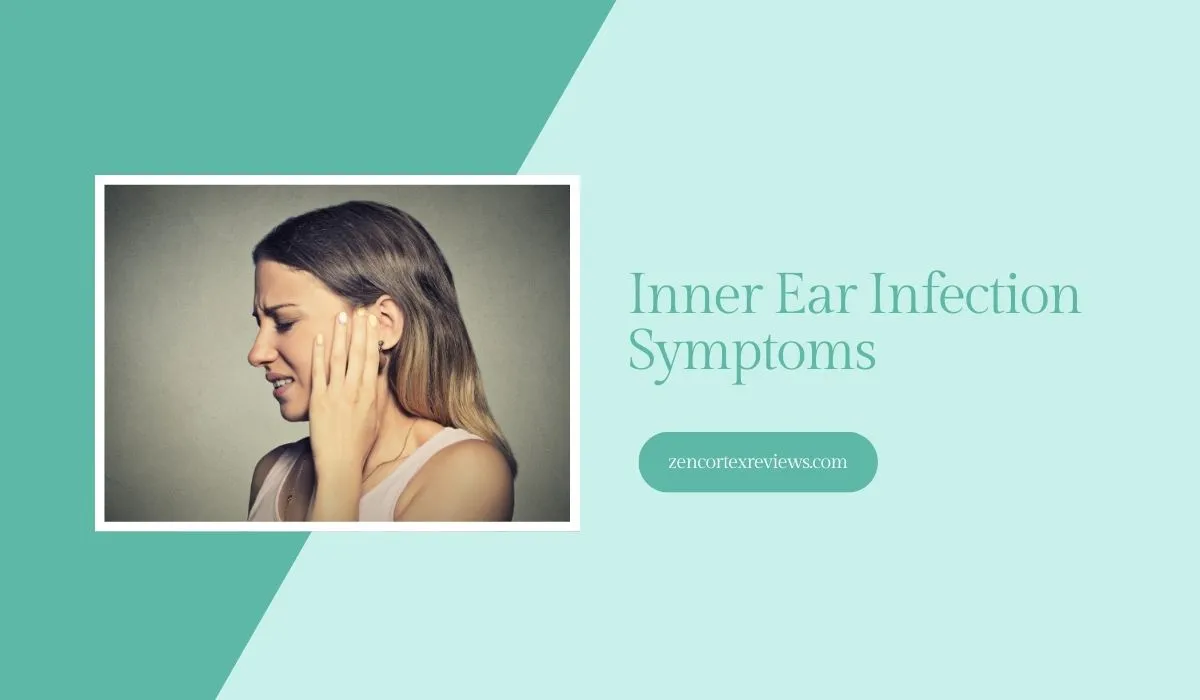Understanding Inner Ear Infection Symptoms: What You Need To Know
Common symptoms of inner ear infections include vertigo, dizziness, hearing loss, tinnitus, balance issues, and nausea, which can significantly impact one’s daily activities and overall well-being.

Disclaimer: Our recommendations are sincere, driven by the products’ benefits. When you buy through our links, we may earn a commission, backing our testing and development at no extra cost to you.
Inner ear infections can be uncomfortable and disruptive, impacting balance, hearing, and even overall well-being. This article explains the inner ear infection symptoms in simple terms, so you can better understand this common condition and know when to seek medical help.
What Is an Inner Ear Infection?

According to the National Library of Medicine, an inner ear infection, or labyrinthitis or vestibular neuritis, is an inflammation of the inner ear structures that can affect your balance and hearing. It differs from a middle ear infection (otitis media), which involves the area behind the eardrum.
Inner Ear Infection Symptoms
The symptoms of an inner ear infection can vary from person to person but often include the following:
- Vertigo: A spinning sensation or feeling that you’re moving when you’re actually stationary. Vertigo can be severe and may lead to nausea or vomiting.
- Dizziness: A general feeling of lightheadedness or unsteadiness.
- Hearing Loss: Partial or complete loss of hearing in one or both ears can be one of the inner ear infection symptoms.
- Tinnitus: A ringing, buzzing, or humming sound in the ears that doesn’t come from an external source.
- Balance Problems: Difficulty walking or maintaining balance, leading to a tendency to stagger or fall.
- Nausea and Vomiting: Often a result of vertigo or dizziness.
- Nystagmus: Rapid, uncontrolled eye movements.
What Causes Inner Ear Infections?
Inner ear infections are often caused by viral infections, such as those associated with the common cold or flu. Bacterial infections can also lead to inner ear infections, though they are less common. In some cases, inner ear infections can result from other conditions, such as allergies or autoimmune disorders.
When to Seek Medical Attention
If you experience any of the above symptoms, especially vertigo or sudden hearing loss, it’s important to seek medical attention. Inner ear infections can be debilitating and may require treatment with medications, such as corticosteroids or antivirals. In severe cases, hospitalization may be necessary.
Diagnosis and Treatment
To diagnose an inner ear infection, your healthcare provider may perform a physical examination and ask about your symptoms. They may also conduct hearing tests or imaging studies, like MRI or CT scans, to assess the condition of your inner ear.
Treatment often involves managing symptoms and addressing the underlying cause. This can include:
- Medications: To reduce inflammation, control vertigo, or treat infections. Also, some ear health supplements are worth trying.
- Vestibular Rehabilitation: A type of physical therapy that helps improve balance and reduce vertigo.
- Rest and Hydration: Ensuring you have a comfortable environment and stay hydrated can aid recovery.
Conclusion
Inner ear infections can be distressing, but recognizing the symptoms early and seeking prompt medical attention can help manage the condition effectively. If you’re experiencing any of the symptoms mentioned in this article, don’t hesitate to contact a healthcare professional for advice and treatment.
References
- National Institute on Deafness and Other Communication Disorders (NIDCD). (n.d.). Vestibular Disorders.
- Mayo Clinic. (2022, December 2). Labyrinthitis.
- American Academy of Otolaryngology-Head and Neck Surgery (AAO-HNS). (n.d.). Vestibular Neuritis and Labyrinthitis.
These references provide additional information on inner ear infections and their symptoms. If you’re interested in learning more, these resources can offer further guidance on inner ear health and related conditions.
Lindsay Martinez
Lindsay Martinez, Au.D., is a licensed audiologist with over 10 years of experience in the field of hearing healthcare. She earned her Doctor of Audiology degree from the University of California, Los Angeles, and currently practices at Martinez Hearing Clinic, a leading audiology practice in the San Francisco Bay Area. As an expert in diagnosing and treating a wide range of hearing disorders, Dr. Martinez specializes in fitting advanced hearing aids and assistive listening devices. She is a fellow of the American Academy of Audiology and has published numerous peer-reviewed articles on topics such as noise-induced hearing loss and the latest innovations in hearing technology. Passionate about patient education, Dr. Martinez is committed to helping her patients improve their hearing and overall quality of life.
